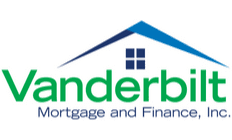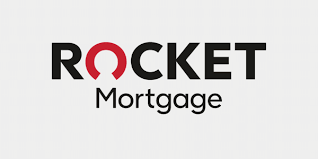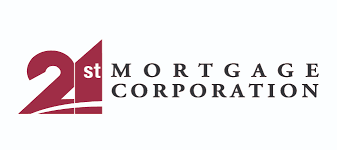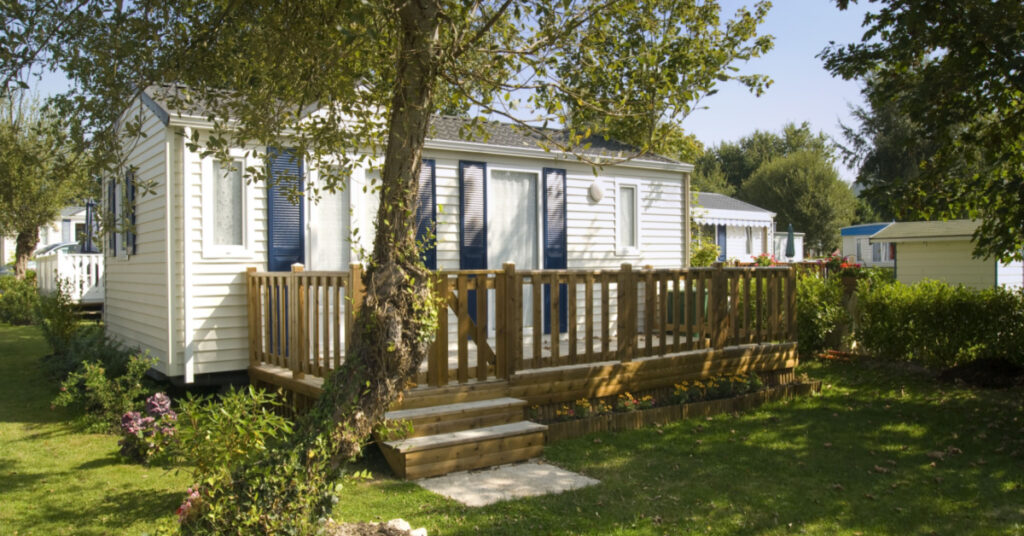We get it. Life gets in the way. Not all of us have perfect credit.
According to Experian.com, most consumers have credit scores between 600 and 750. In 2020, the average FICO score in the U.S. reached 710, an increase of seven points from the previous year. Less-than-ideal credit can be discouraging if you’re in the market for a home loan. But don’t despair. If you’re looking to buy a mobile home and have bad credit, you still have some options.
Table of Contents
Best Bad Credit Mobile Home Loan Options
You probably aren’t going to find a home loan with guaranteed approval because most loan providers will require a minimum credit score of 575 or slightly higher. But here are some of the top mobile home lenders with low credit requirements.

Vanderbilt Mortgage
Vanderbilt Mortgage and Finance Inc., a national housing lender, has been in business for more than 40 years. Vanderbilt doesn’t list loan requirements on their page. But to qualify for an FHA loan, you need at least a 580-credit score and a 3.5% down payment. And most lenders will require at least a 620-credit score to qualify for a conventional mortgage.
Pros:
- Offer a variety of loan options for borrowers with low or unestablished credit scores
- National profile
- Offers several types of loans, including traditional, biweekly and FHA mortgages
Con:
- Website isn’t clear about loan requirements

Amerisave
Amerisave offers conventional loans, jumbo, FHA, VA, USDA, fixed-rate, adjustable-rate, rate-and-term, cash-out, and streamlined refinancing. Amerisave has been in business since 2002 and requires 620 for conventional loans; 700 for jumbo loans; 580 for FHA loans; 580 for V.A. loans; 640 for USDA loans. Available in all states except New York and Washington D.C.
Pros:
- Offers prequalification and rate quotes without a hard credit pull, transparent pricing and fee structure, and time to close of 25 days
- Flat $500 application fee, the lender does rate matching
- Qualified borrowers get a “Pre-Certified Approval Letter,” which lasts up to 60 days
Con:
- No branch retail locations and no first-time homebuyer program.

Rocket Mortgage
Rocket Mortgage offers conventional, jumbo, FHA, VA, fixed-rate, adjustable-rate; rate-and-term, cash-out and streamline refinancing; investment property; and flex-term.
Pros:
- Low down payment
- Customer service is available seven days a week
- Available in all states.
- “YOURgage,” which allows borrowers to set their loan terms from eight to 29 years
- Cash-out refinancing
- Borrowers can complete this process through the Rocket Mortgage app, which allows you to e-sign the application and track your loan.
Cons:
- No brick-and-mortar locations
- Borrowers must also have a debt-to-income ratio (DTI) of no more than 50%

eLEND
If you are a home buyer looking for extra financial assistance, eLEND can offer you more options than most other lenders.
Pros:
- Variety of loans: a fixed-rate mortgage, adjustable-rate mortgage, refinancing; V.A. loan, FHA loan, USDA loan, renovation loans and disaster loans
- Offers down payment assistance program to teachers, civil servants, medical responders, police officers, and military personnel
- Online resources to help homebuyers before and during the mortgage process
- An online portal, such as applying for a loan, comparing mortgage rates, and managing your loan
- Great technology integration
Con:
- Limited reviews make it hard to compare with other lenders.

21st Mortgage
21st Mortgage is a full-service lender specializing in manufactured and mobile home loans.
Pros:
- No minimum score for most loan products
- They can help if your score is less than 575 and “zero credit score” buyers
- No maximum debt-to-income ratio
- 0% down available for well-qualified buyers, but typically 5%-35% down
- Terms generally up to 30 years
- In most states, they do not have age restrictions on the home
Cons:
- Not available in Alaska, Hawaii, Massachusetts or Rhode Island
- Not available in the following Illinois counties: Cook, Kane, Peoria, and Will
- Investment properties are limited to 10-year terms

Manufactured Nationwide
Manufactured Nationwide is a division of Magnolia Bank, which was founded in 1919. They are
experts in low-down-payment, government-backed loan programs. Available in all 50 states,
Manufactured Nationwide offers mobile home loans with low credit scores, down payment
requirements, and flexible loan terms.
Pros:
- They offer loans for new and used single-wide, double-wide, and triple-wide manufactured, mobile, and modular homes
- They have a program that lends up to $1.5 million on purchases
- Terms for the loans are 15, 20, or 30 years
Cons:
- Closing and take up to a couple of months with some programs
- Not available for homes on rented land or in mobile home parks
Best Sites to Help You Find a Loan with Guaranteed Approval
Home Loan Gurus
Home Loan Gurus is a mortgage broker that specializes in helping first-time home buyers with credit challenges match with lenders.
One Google review says: “My experience with Home Loan Gurus has been amazing. They were attentive and quickly responsive. Bernie has helped me tremendously. I would recommend them to everyone.”
Acorn Finance
Acorn Finance works with partners of reputable and top-rated lenders to increase the competitiveness of rates. They help borrowers secure home improvement, remodel, repair, alternative housing (manufactured homes, modular, tiny homes, etc.), Green loans, barns,
landscape, fence financing, and other types of funding.
A user on Trustpilot says, “Thank you. I had been turned down by other lenders. Thank you so much helping me get this funding as I will have bills paid off and this loan when I retire in 4 years.”
READ MORE: Mobile homes vs manufactured homes
Mobile Home and Manufactured Home Loans: What You Need to Know
Eligible mobile homes can be refinanced using various types of loans, including:
Conventional loans
Fannie Mae and Freddie Mac back conventional loans; to qualify, most borrowers will need a minimum credit score of 620 and at least 5% equity in the home. Conventional loans can be fixed-range or adjustable, and you can get cash-out refinancing in
some cases. Loan terms are up to 30 years.
READ MORE: Best conventional mobile home loans
FHA Loans
FHA home loans are better options for borrowers with bad credit, particularly when buying mobile homes or manufactured homes. Though it sounds like you’d apply for a loan through the Federal Housing Administration, you do not. You use it through a traditional financial institution. Lenders are encouraged to fund FHA home loans.
FHA loans offer some key benefits
- Down payments as low as 3.5%
- Fixed interest rates
- The maximum loan for a manufactured home with no lot is $66,678.
- The maximum loan amount for manufactured homes and a lot is $92,904.
Borrowers with credit scores below 640 may still qualify but will pay higher interest rates. It still may be lower than what you’d pay using a loan targeting lousy credit borrowers. The Federal Housing Administration guarantees FHA loans. They offer flexible guidelines and a low down-payment option. They’re a good option for first-time homebuyers, but they’re also available to repeat home buyers.
The program requires a minimum credit score requirement of 580; however, you may still qualify with a 575 credit score. Loan terms range from 20 to 25 years
FHA Title 1 Loans
An FHA Title 1 loan is a secondary loan to fund some home improvements. Through these, the federal government basically ensures that low-income homeowners and long-term renters can afford needed home improvements.
To qualify, you must:
- Use the mobile home as your primary residence
- The mobile home must be set on a permanent foundation
- Lease from an FHA-compliant site
- Have an FHA-eligible lease
V.A. Loans
Backed by the U.S. Department of Veterans Affairs, these loans offer ultra-low interest rates, but they’re only available for military veterans and service members. In addition to military service, you’ll typically need a minimum credit score of 620. The maximum loan term is 25 years.
Read more: Looking to refinance a mobile home loan? Here’s how.
Requirements for Manufactured Homes
The FHA and V.A. have specific requirements regarding mobile homes and manufactured homes. They must:
- Meet the minimum standards
- New homes must carry a one-year manufacturer’s warranty
- Be installed on a site that meets established local standards for site suitability
- Title I manufactured home loan proceeds may not be used to finance furniture, but built-in appliances, equipment, and wall-to-wall carpeting are eligible
USDA Loans
The U.S. Department of Agriculture backs USDA loans. They are designed to promote homeownership in under-developed parts of the U.S., so they’re only available in designated rural areas. The mobile home must be less than one year old.
Looking for more information on the different types of mobile home loans? Check out this video:
Mobile Home Loan Interest Rates
Interest rates are rising across the board, and mobile home loan rates are no different. You’ll be more likely to save money if you can refinance to a shorter loan term.
Conventional and FHA Loans: Depending on your qualifications, FHA loan rates can be comparable to a traditional mortgage loan. And will offer the most competitive rates. Fannie Mae and Freddie Mac loans are similar to a conventional mortgage, but the minimum credit score is much higher, at around 620. Fixed rates or variable rates are available.
Chattel loan: A chattel loan finances a mobile home as personal property, not real estate. Because of this, interest rates are often much higher than what you’d pay a mortgage lender. The result is a higher monthly payment. If you have a chattel loan, mobile homeowners could save significant money by refinancing to a traditional mortgage. These rates are significantly higher than the other options and range from 7.75% to more than 10%. Terms are up to 20 years.
READ MORE: How to refinance your mobile home if you don’t own land.
Mobile Homes, Manufactured Homes, and Modular Homes: What’s the Difference?
- Manufactured homes: Manufactured homes are usually built in a factory. Traditional homes are built onsite. Once completed, manufactured homes are moved to their final destinations on a truck and placed onto foundations, making them permanent. You will need to own the land on which the manufactured home foundation is built.
- Modular home: Modular homes are primarily constructed in a factory, but the house is transported in pieces to the home site, where construction is finished. Once built, a modular home can’t be moved.
- Mobile home: A mobile home is built in a factory but on a permanently attached chassis. It is then transported to the site by being towed or on a trailer. They are often left always or semi-permanently in one place but can be moved. You can rent space in a mobile home community or own the land on which it’s located.
READ MORE: Manufactured homes vs modular homes — what’s the difference?
Understanding the Cost of a Mobile Home
New homes can cost significantly less than traditional homes. The average price of a manufactured home is $118,700 in July 2021. The average price for a single-wide is $76,000, and the average cost for a double-wide is $137,800.
Other costs:
- Down payment
- Land cost
- Closing costs
- Loan fees
Compare Lenders
Since manufactured home loans differ from traditional mortgages, you need to find a lender that supports them. Items to consider:
- Rates: Mobile home loan rates are generally slightly higher than traditional mortgage rates; you look for reasonable rates and fees. The lower the rate, the less you’ll pay over time.
- Loan options: Make sure your lender offers the type of loan you need.
- Down payment requirements: Many manufactured home loans have more flexible down payment requirements. If you haven’t saved much money, look for a low-down-payment option
- Credit requirements: Many manufactured housing lenders are willing to work with poor to fair credit borrowers
- Geographic availability: Not all lenders operate in all 50 states
- Customer service: Pay attention to review sites and comments
READ MORE: Banks that refinance mobile and manufactured homes
How To Apply for a Mobile Home Loan
Before you apply:
- Obtain an estimate for the amount you’ll need
- Decide on the type of manufactured home loan you want
- Make sure you meet minimum credit score and debt to income ratio requirements.
- Secure quotes from different lenders to compare rates
- Prequalify
READ MORE: How to finance a mobile home with cash out
What Credit Score Do I Need to Buy a Mobile Home?
You need at least to be in the 500 and 600 range. A credit score lower than 500 may not qualify at all. Higher credit scores will always get you better rates and terms. Credit scores in the 700s and 800s will get the lowest interest rates. Check your credit report before starting the loan application process to ensure that nothing is dragging down your credit score.
Financing Alternatives
- Borrow from a friend or relative
- Save at least 20% for the down payment
- Look for a seller who is willing to finance your loan
- Obtain financing from the mobile home dealer
- Apply for funding through a credit union
What is the Office of Manufactured Housing Programs?
HUD’s Office of Manufactured Housing Programs (OMHP) administers the National Manufactured Housing Construction and Safety Standards Act of 1974, which authorized HUD to establish federal standards for designing and constructing manufactured homes. HUD standards may preempt state and local laws that do not conform to the HUD standards.
The Bottom Line
Mobile homes are much more affordable than their build-to-suit counterparts. But not all lenders do loans in this niche housing market. You will need to understand the eligibility requirements for loan approval and find a suitable place to rest it.
FAQs
You will not be required to pay private mortgage insurance when you obtain a manufactured home loan.
Mobile homes are a good value if your main focus is a place to live. Of course, there are some benefits to buying a mobile home. For one, they are affordable. But they are a terrible investment because they drop in value quickly, the same way your car loses value the second you drive it off the lot. Investing in a mobile home isn’t like investing in
real estate. Because the land the mobile home sits on is real estate, the house is considered personal property.
The #1 source of mobile home parks online is www.MobileHomeParkStore.com. This website has between 1,000 and 2,000 mobile home parks for sale. The #2 position is www.LoopNet.com. While the leader in commercial real estate as a whole, it is not quite as dominant as MobileHomeParkStore.com in that niche.
This program ensures private lending institutions make mortgage loans to finance the purchase of a new or used manufactured home. HUD has provided loan insurance on manufactured homes under Title I since 1969.

